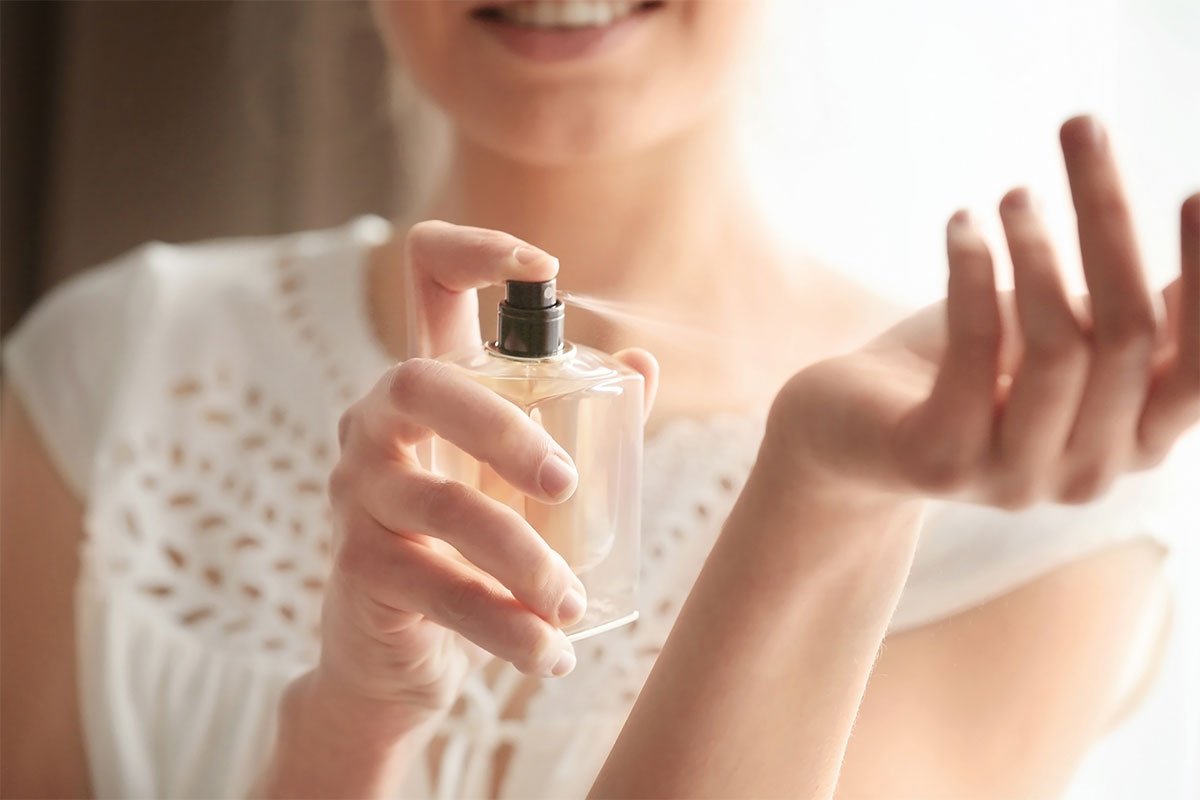
There’s more to the seasons changing than putting out your pumpkin-colored pillows and watching the leaves turn.
There’s getting out your sweaters, picking out a new favorite candle and maybe spending some time in the mountains. But what about transitioning your personal scent into the new season … is there truly a difference between summer and fall perfume, and should we change them when the temperatures cool down?
Yes, says Sherry Meredith of DIY Scent Studio. That’s why we spoke to her about preparing for the new season and what it means for our daily routine. Highlights from our conversation are below.
How do you suggest readers can find a scent that matches their personality?
Trust your nose. Finding a scent that matches you involves learning the language of emotion. Perfume is a form of communication just like music. You can start by exploring the various scent families and learn how the smells make you feel and evoke an emotional reaction. You can explore scent families at department store perfume counters or in niche perfume shops. In our studio, we have perfume organs with the smells organized by scent family. For example, citrus, woods, floral, spices, marine, herbal, gourmand, green and animalic. You can explore the different smells and learn what speaks to you. It’s like selecting your favorite music playlist. When you learn the smells you like, you can blend them into a beautiful composition.
Do you find that certain personality types are attracted to certain types of perfume?
One of my natural perfume instructors said that we are unconsciously attracted to the smells that meet our emotional needs and complement our relationship with the outside world. We are all complex creatures and it is probably an over-simplification to label smells with personality types. That being said, I do believe that extroverted, bolder personalities usually will choose fragrances that leave a trail to make their mark, just like other animal species. In perfumery this is called sillage. These types of perfumes have strong base notes like vanilla, amber and contain an element with an animalic overtone. More reserved, traditional romantics love florals because they tend to be more comfortable in their own skin and are family nurturers. Outdoor personalities love the woods, green and earthy smells. For example, sandalwood and petrichor (the smell in the air after rain falls after a dry spell and the air is disturbed). Stable, strong personalities are attracted to foundational earthy scents.
For transitioning into fall, what do you recommend for changing or adapting your perfume?
When summer comes to an end, we all look forward to fall with new goals and schedules, cooler weather, and fall-like activities such as picking apples. We also become more attracted to smells of autumn like the leaves, maple and warming smells like pumpkin, woods, earthy-mossy smells, amber, vanilla and spices. The warming smells are heavier molecules and last longer on the skin. They make you feel warm and fuzzy like wrapping yourself in a blanket. When thinking of changing or adapting your scent, think of your mood and overall well-being. Perfume is our second skin and our language to communicate with the outside world. Choose your perfume like any other accessory. Warming smells can be found in most perfume families. Change up your perfume by choosing the warming smells that make you happy, or find a warm scent and layer it over your favorite. At DIY Scent, we feature all of the fall warming smells, including an autumn spice accord.
Are there any specific scents readers should use during the fall and winter?
I don’t believe there are any rules in perfumery. Our choices are a reflection of our moods and emotions. Transitioning into the fall and winter months, we tend to think of the smells that are indelibly etched in our memories from family gatherings and holidays, like the warming and gourmand smells of pumpkin, spices, maple and apple pie for Thanksgiving. In winter, we think of crackling fireplaces and smoke, hot chocolate, peppermint candy canes, balsam fir and pine. These smells are all elements that are used in perfumery composition. These molecules are heavier and darker, as well, and last longer on the skin, and are used in fall and winter scents. They tend to be warming, as well as emotionally uplifting.
Lastly, how do we make the smell of perfume linger on our skin throughout the day?
There are a number of ways to enhance the longevity of the smell on the skin. The best trick is to use a non-scented lotion and apply your perfume over the lotion. Re-applying throughout the day will also certainly enhance the duration of the scent. And remember: perfumes that last the longest on the skin aren’t necessarily those that are high-quality, either. A high-quality perfume will not necessarily be long-lasting, depending upon the ingredients used. Longevity relates to the quality and source of materials used and the top, middle and base note, in the perfume’s composition and long-lasting perfumes tend to be those that are made with the purest natural materials and aroma chemicals.
Want to get more beauty tips and tricks from local Northern Virginia experts? Subscribe to our Shopping e-newsletter.

